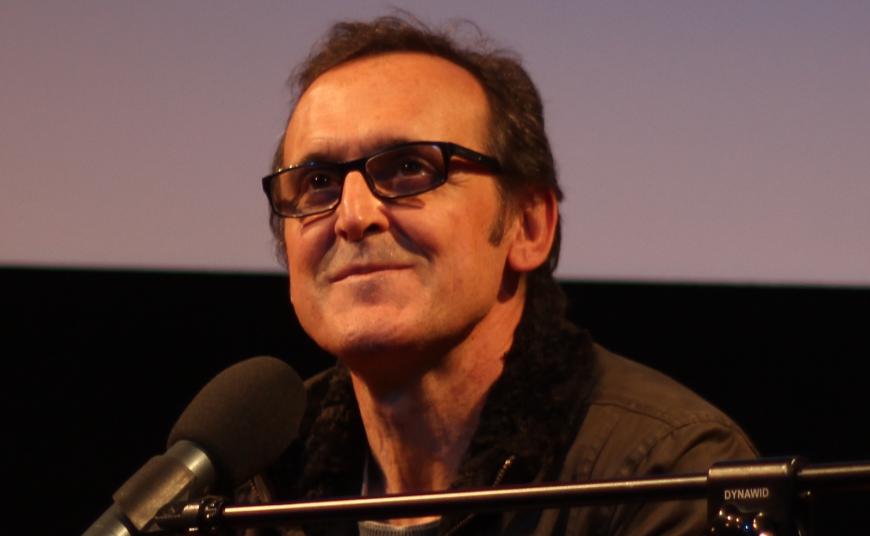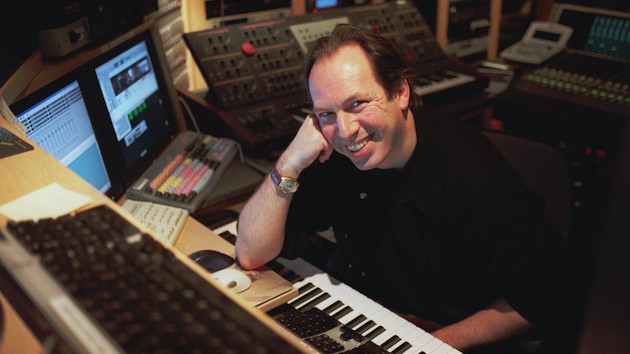
The 94th Academy Awards finds Hollywood film music in a curious place. In 2022, the art form has the most popular awareness and interest in its century of existence, and it’s as diverse — both in terms of the stylistic and educational background of its composers, as well as their gender and ethnicity — as it’s ever been. And yet, the Academy just decided to cut the Best Score awards presentation from its main telecast, kicking composers to the kids table with the other categories it clearly finds not cool enough. I suggested on Twitter that it’s only fair if they do the whole ceremony without music.
This year’s short-shrifted nominees are an eclectic bunch, yet again reflecting film music at a crossroads. The oldest and in some ways most classical is Alberto Iglesias, earning his fourth nomination in a career that began 40 years ago. His previous three nods were for English-language prestige dramas — The Constant Gardener, The Kite Runner, and Tinker Tailor Soldier Spy — but Iglesias is best known for his long, 13-film collaboration with fellow Spaniard Pedro Almodòvar.

He may not be from California, but Iglesias is from the old school of Hollywood film scoring, and Parallel Mothers is a prime display. Unexpectedly for this quotidian soap opera about maternity tests and complicated relationships, the score evokes a Bernard Herrmann/Alfred Hitchcock thriller — albeit with an occasional Spanish flair. (Then again, even Herrmann gave North by Northwest a fandango). A spare string quintet unsettles the everyday exploits of new mother Janis (Penelope Cruz), mysteriously slithering and churning as if it’s scoring Marion Crane driving to the Bates Motel on a rainy night. There’s a classicism and tuneful quality to the score, with opportunities for virtuoso woodwind and piano solos, and it jumps out from the film by projecting such an oddly suspenseful shade onto it. Iglesias’s nomination is probably the most surprising of the five, but maybe it was just impossible to ignore.
The other veteran nominee is Hans Zimmer, who is Iglesias’s polar opposite in spirit and style. Throughout his 40-year career, Zimmer has led the charge on demolishing the old definition of movie music — trimming melodies down to grooves and even single sustained notes, leading the arms race toward the loudest noise possible, and blurring the division between score and sound design. His nominated score for Denis Villeneuve’s Dune is one of his most purely elemental and raw to date, a somewhat perplexing approach for a rich, literary canvas that would seemingly invite a romantic space opera treatment, but one that has proven effectively visceral and even popular enough to make Zimmer this year’s Oscar frontrunner.
Zimmer chose sonic textures and primal feelings over melody and musical complexity. For Duke Leto Atreides (Oscar Isaac), the warlike cry of bagpipes; for the messianic Paul (Timothée Chalamet), the ancient Armenian duduk and wandering Middle Eastern intervals; and for the Lady Jessica (Rebecca Ferguson) and her order of witches, the wild growls and howls of female singers. Like the planet Arrakis (aka Dune), the score is a barren desert full of harsh winds and rumbling, deafening sandworms. It’s atmospheric music with only hints of character or emotion, but powerful enough to fill the vast caverns of outer space and the seven channels of Dolby Atmos sound. It may not be Zimmer’s most original or hummable score, but it may have spoken in a Bene Gesserit Voice, bewitching the film community into handing it an Oscar.

Only a witch would have guessed that Jonny Greenwood, the quiet guitar player from Radiohead, would not only dabble in film scoring but quickly become one of its most reliably interesting and innovative composers. In the 15 years since scoring There Will Be Blood for Paul Thomas Anderson, Greenwood has done just that, and 2021 saw him taking a victory lap with scores for three auteur films: Anderson’s Licorice Pizza, Pablo Larraín’s Spencer, and Jane Campion’s The Power of the Dog. For my money, Spencer was the year’s best score — brilliantly haunting the horror movie about Princess Diana with, of all things, baroque crime jazz.
But I won’t argue with the music branch’s choice of Power of the Dog, his equally subversive take on the Western. I don’t know whether it’s because of his rock star status or because of the auteurs who hire him, but Greenwood consistently goes against the conventional grain and writes something wildly surprising. For Campion’s uncomfortable examination of the rotten core of rugged masculinity, Greenwood played cello like a banjo, rigged up a detuned player piano with software, and filled the widescreen vistas with lonely horns and modernistic strings. Long may he reign.
Greenwood’s equal in thoughtfulness and unconventionality is Nicholas Britell, who has been earning Oscar nominations since he made his big splash with Moonlight in 2016. Besides Barry Jenkins, his steady directing partner is Adam McKay, who made the star-stuffed tragicomedy Don’t Look Up. Whether you believe the Netflix parable about climate change is the apex or the nadir of McKay’s conversion from comedian to righteous liberal preacher, it’s hard to deny the inventiveness, sophistication, and ultimately heartbreak in Britell’s score.
A high concept composer who gets into films on a granular level and on their ground floor, Britell came up with the idea of a bananas big band to score these characters’ response to a doomsday comet as if it were America reacting as ridiculously to World War II. His swinging theme for blaring trumpets, toy pianos, and banjos accompanies the madness, and is painfully funny even where the script is just painful. There is genuine pain, too, in his theme for logic and science — an introspective adagio for celeste and orchestra that acts as a lovely counterbalance. The film’s tones are probably too whiplash-inducingly different for Britell to earn his first Oscar win, but his continued nomination streak is more than justified.

The newest inductee to the Oscar club is Germaine Franco, who’s been working in film music for almost 20 years but most of them as an assistant and percussionist for John Powell (The Bourne Identity). She gave Pixar’s Coco much of its heart through her original songs (“Proud Corazon”) and Mexican-styled orchestration of Michael Giacchino’s score, and with Disney’s Encanto she got her first big shot at scoring a technicolored family fantasy all on her own. Franco went deep in her research of Colombian rhythms and collaborating with Colombian and other Latin musicians, and the results paid off — not only in terms of authenticity, but in a score that dances and grooves in an infectious way.
Franco is the first woman to score a Disney animated feature and the first Latina to earn an Oscar nomination. But it’s too easy to focus on statistics like those, and it takes away from the real achievement of Franco’s score — which, although it sometimes hews to Disney conventions and is a bit crowded by Lin-Manuel Miranda’s songbook and its potpourri of genres, is one of the more inspired scores for the genre in recent years, and a worthy choice by the Academy. This will likely not be Franco’s year, but she has more than claimed her seat — even if the Academy mistakenly excludes her and her fellow nominees from the grownups table. The future of the art form is brighter because of her.








